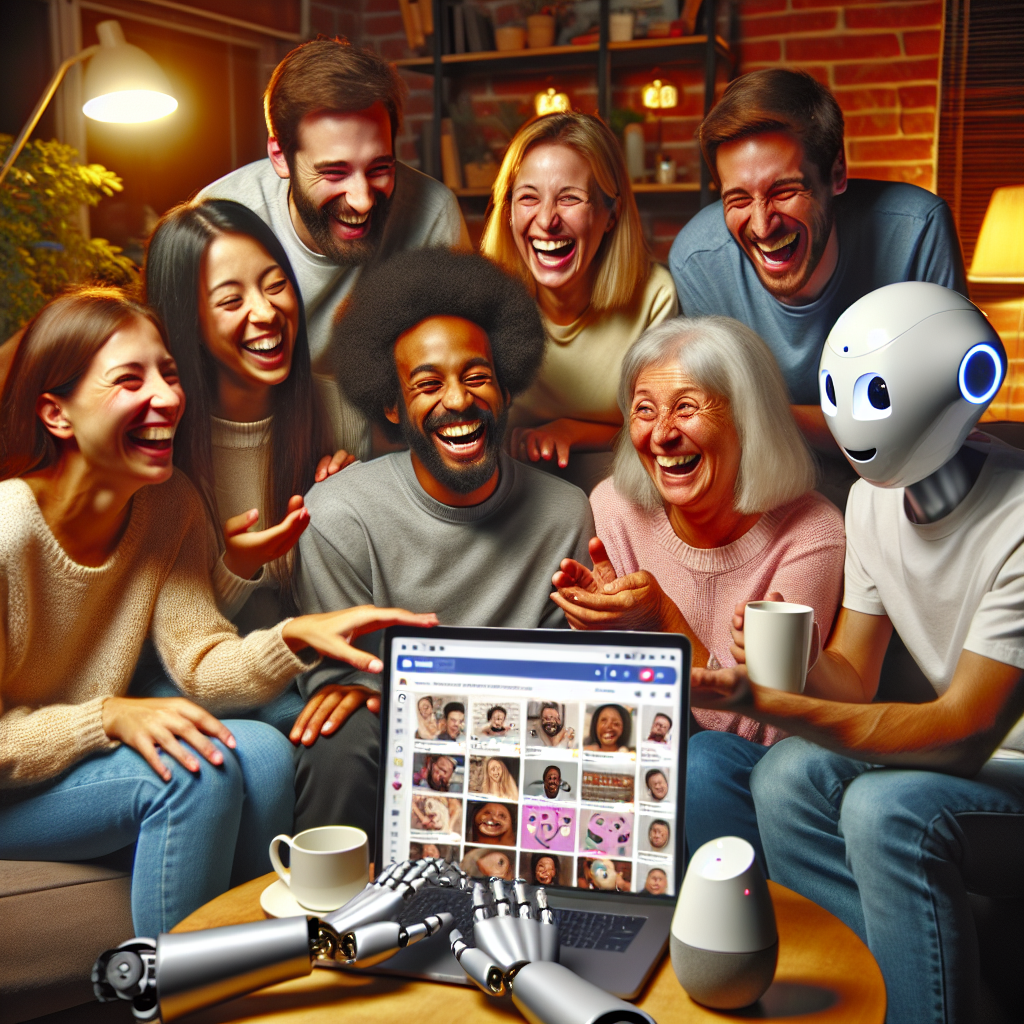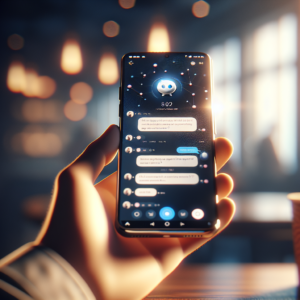Study Finds AI-Generated Meme Captions Funnier than Human Ones on Average
In a world increasingly dominated by technology and artificial intelligence, it’s no surprise to see AI making strides in various aspects of our lives. One of the latest revelations comes from a recent study suggesting that AI-generated meme captions are funnier than those created by humans, on average. This striking conclusion has sparked discussions around the creativity, humor, and potential implications of AI in our digital culture.
The Rise of AI in Creative Domains
Artificial intelligence has permeated numerous fields, from healthcare to finance, and now it is making its mark in creative arenas like art, music, and writing. The idea that machines can create humor taps into the essence of human interaction and communication, a domain we typically consider uniquely human. With advancements in natural language processing and machine learning, AI systems are now able to analyze vast datasets, including memes and their reception, to generate content that resonates with audiences.
Meme culture has exploded over the last decade, with platforms like Instagram, Twitter, and TikTok allowing anyone to create and share memes in a matter of seconds. The comedic value of these memes often hinges on clever captions that encapsulate relatable moments or current events. This dynamic landscape presents the perfect playground for AI, which can learn from the successes and failures of human meme creators.
The Study: What Did Researchers Find?
The recent study that generated buzz around AI-generated meme captions involved several key components. Researchers utilized a variety of AI models, particularly those trained on extensive datasets of memes and their associated captions. They then asked participants to rate the humor of both AI-generated and human-generated captions on various memes.
Participants were surprised to find that the AI-generated captions often elicited more laughter and engagement than their human counterparts. The findings suggested that AI has the capability to understand humor in a way that was previously underestimated. This insight raises important questions about the future of creativity and the role of machines in artistic expression.
Why Are AI-Generated Captions Funnier?
Several factors contribute to the perceived funniness of AI-generated meme captions. Firstly, AI can analyze the structure of successful memes and identify patterns that consistently lead to humor. By breaking down elements such as timing, wordplay, and cultural references, AI systems can generate captions that align with what audiences find funny.
Additionally, AI models can quickly iterate and experiment with vast combinations of words and phrases, leading to unique and unexpected outcomes. This flexibility allows AI to craft captions that may not initially come to mind for human creators, who may rely on personal experiences or conventional humor styles.
Moreover, AI’s lack of personal bias means it can produce humor that appeals to a broader audience, minimizing the risk of exclusion or misunderstanding that can sometimes occur with human-generated content. This universal approach may resonate with diverse groups, enhancing the overall comedic impact.
Human Touch vs. AI Efficiency
While the study’s findings highlight the comedic potential of AI, they also prompt a deeper reflection on the value of human creativity. Humor is often deeply tied to personal experiences, cultural context, and emotional nuances. These subtleties make our understanding of humor inherently complex and subjective.
Humans excel at infusing emotion into their creations, drawing from lived experiences and societal observations. This human touch adds layers to humor that AI may struggle to replicate fully. While AI can generate captions quickly and efficiently, the richness of human ingenuity cannot be easily replaced.
As we ponder the implications of AI in creative domains, it becomes crucial to consider the balance between efficiency and emotional resonance. The future may not be about AI completely taking over the creative process, but rather enhancing and collaborating with human creators to produce humorous content that captivates audiences.
What This Means for Memes and Digital Culture
The findings from this study could signal a shift in how we perceive memes and humor in digital culture. As AI tools become more prevalent, we can expect to see an influx of AI-generated content flooding social media platforms. This could lead to a new era of meme creation, where human and machine collaboration results in innovative and entertaining outputs.
However, the proliferation of AI-generated memes may also raise ethical questions. What happens to the originality of humor when machines are able to mimic human creativity? Will audiences begin to prefer the efficiency of AI-generated jokes over traditional human humor? These questions will likely shape the discourse surrounding digital culture and the evolving role of AI.
The Future of AI and Humor
As technology continues to evolve, so too will the relationship between humor and AI. Future studies may delve deeper into the psychological and social implications of AI-generated captions and the potential impact on how we interact with humor in our daily lives.
As we navigate this evolving landscape, there are several avenues for exploration:
1. Collaborative Humor Creation: We might see platforms that allow users to collaborate with AI to create memes, blending human creativity with machine efficiency.
2. AI in Content Moderation: AI could also play a role in filtering out inappropriate or offensive humor, ensuring that meme culture remains inclusive and respectful.
3. Personalization of Humor: AI could tailor meme captions to individual preferences, making humor more accessible and enjoyable for a diverse audience.
4. New Forms of Comedy: The evolution of AI-generated humor could lead to entirely new forms of comedy that we have yet to explore, enriching the landscape of digital entertainment.
Conclusion
The study revealing that AI-generated meme captions are often funnier than those produced by humans opens the door to intriguing possibilities in the world of humor and creativity. While AI’s ability to capture humor is impressive, it is important to celebrate the unique nuances that human creators bring to the table.
As we stand on the brink of this new age in meme culture, the potential for collaboration between AI and humans offers exciting prospects. Whether we embrace AI-generated humor or continue to champion human creativity, one thing is certain: the landscape of humor is changing, and we are here to witness this transformation. Embracing both the machine and the human elements may lead to a richer and more diverse comedic experience for all.



